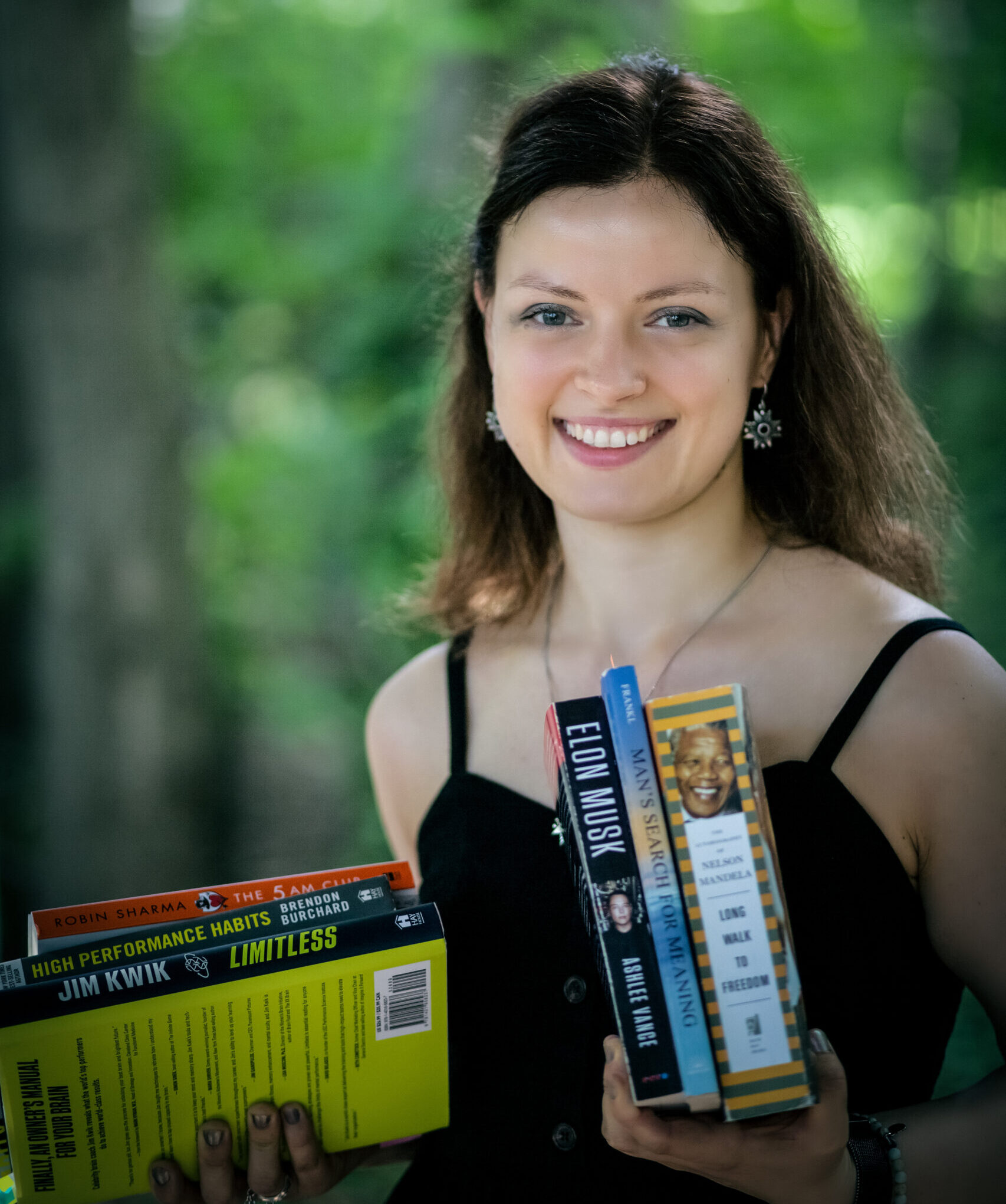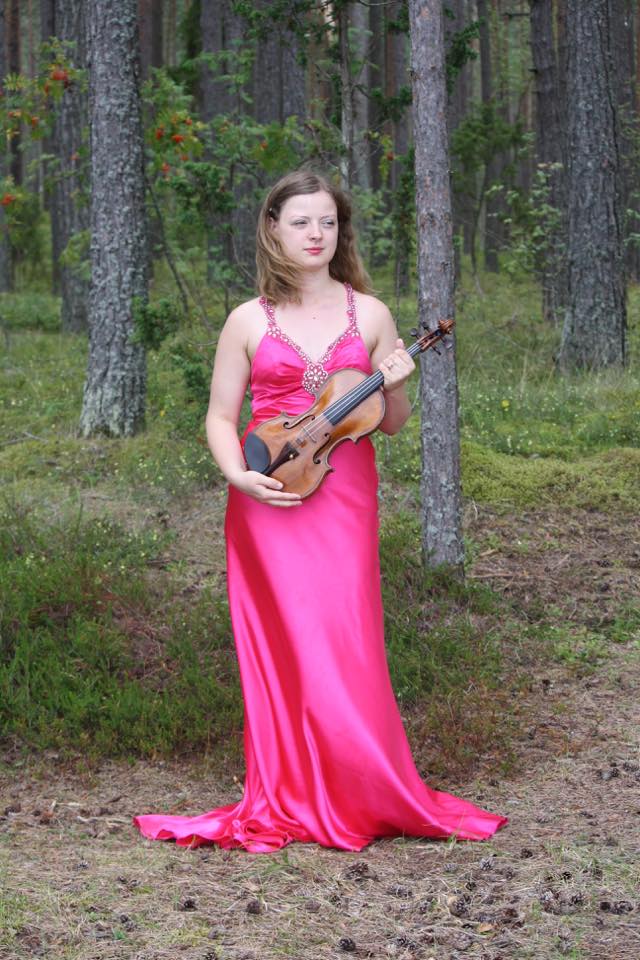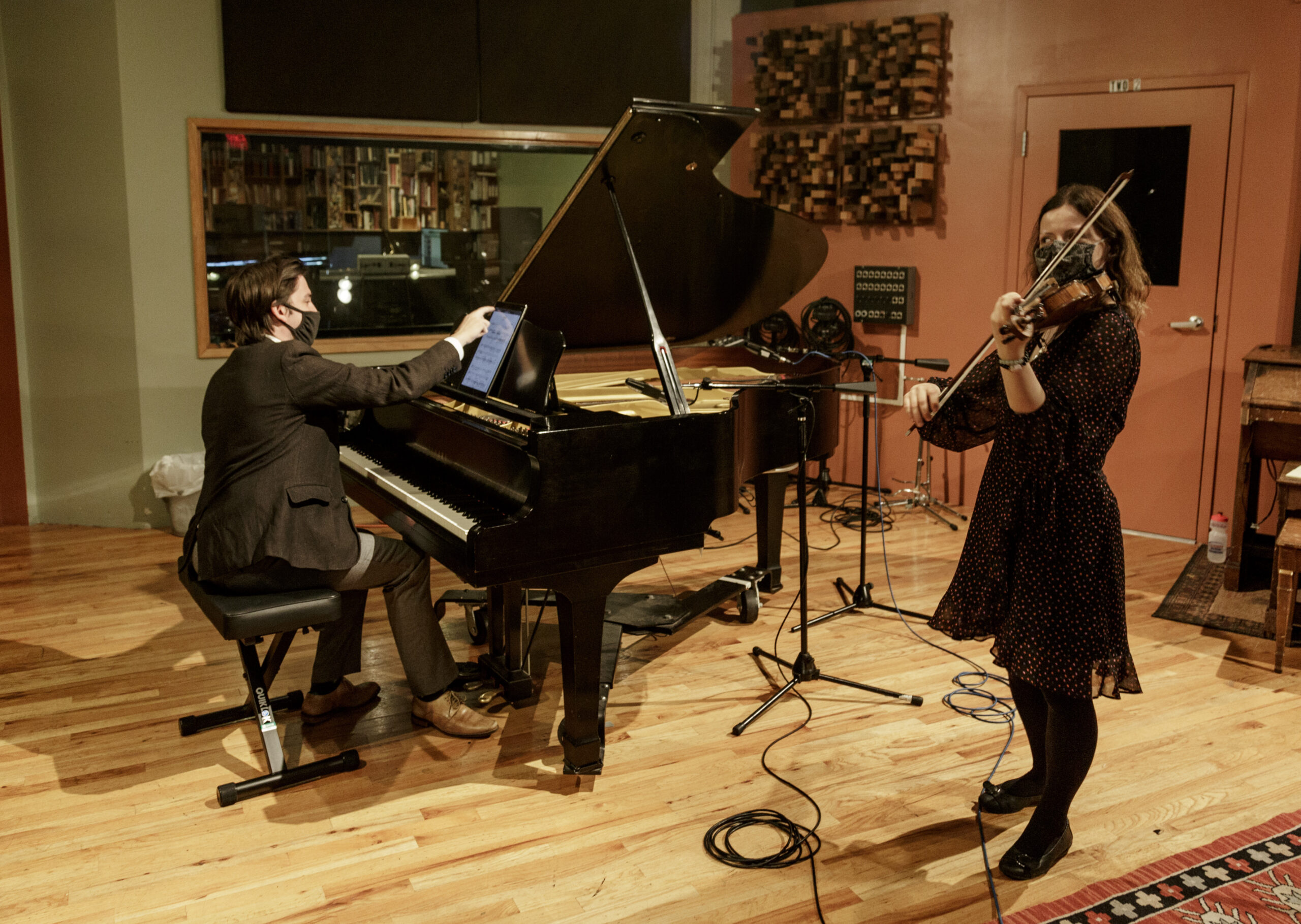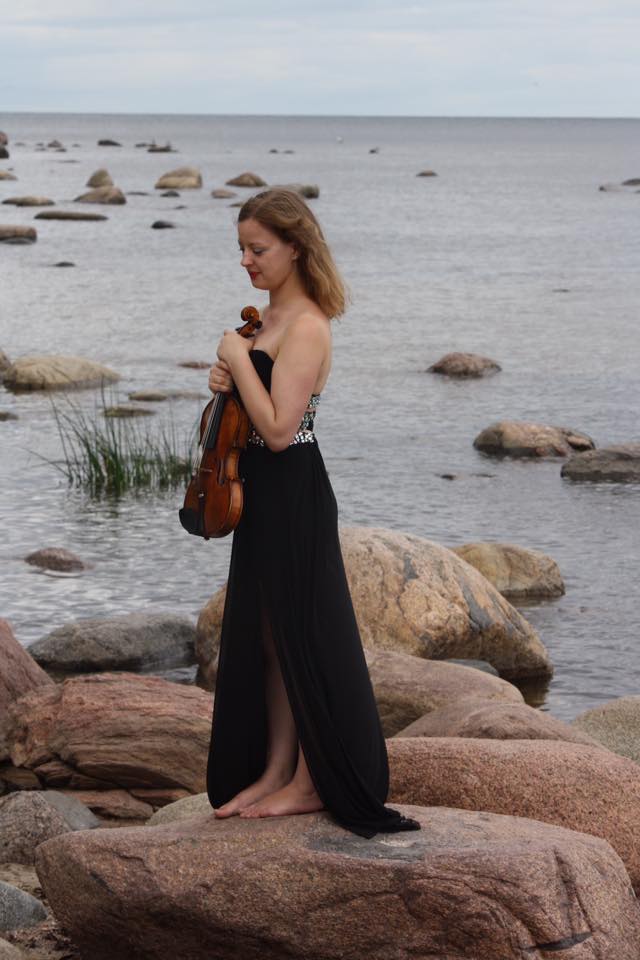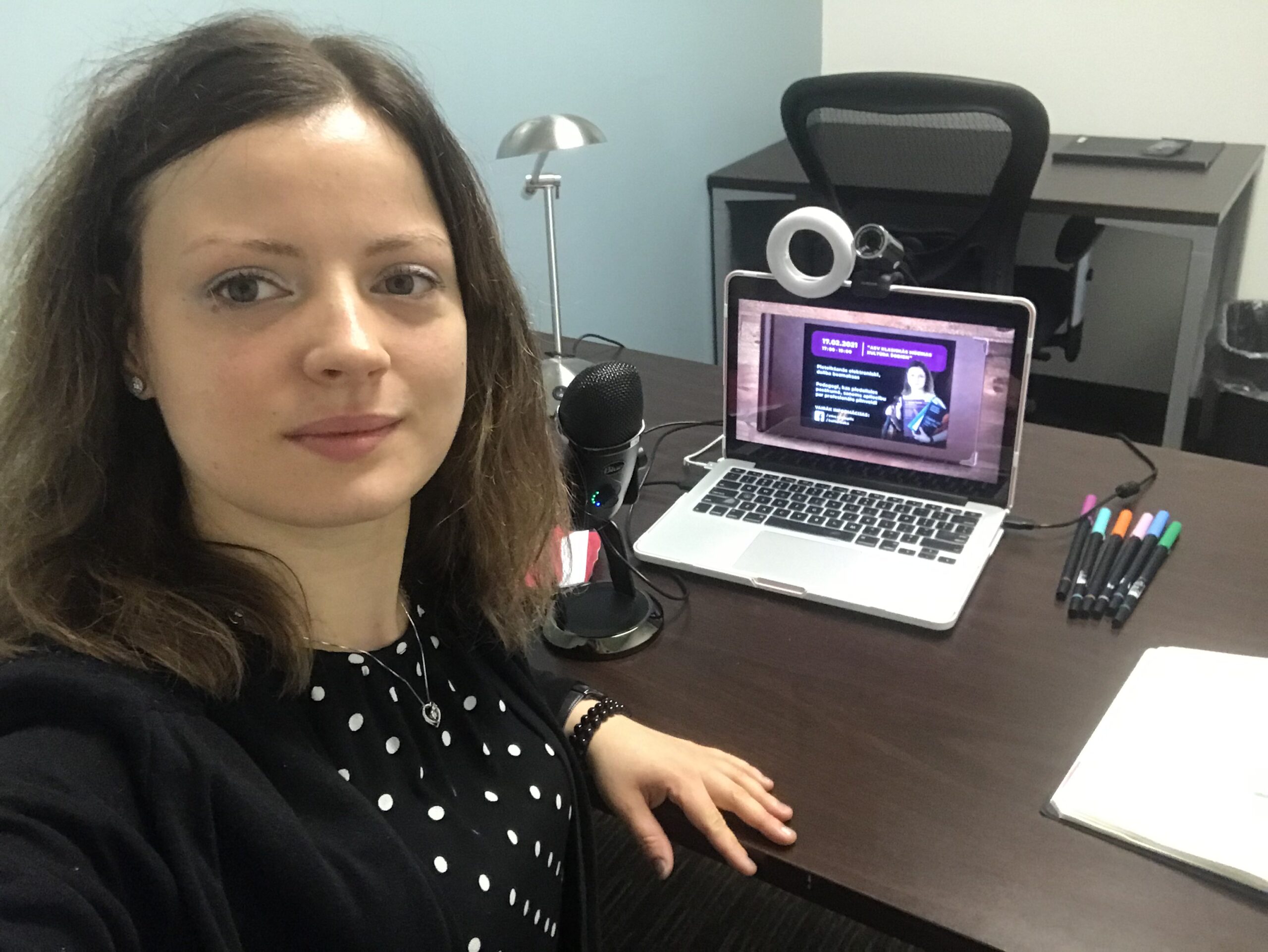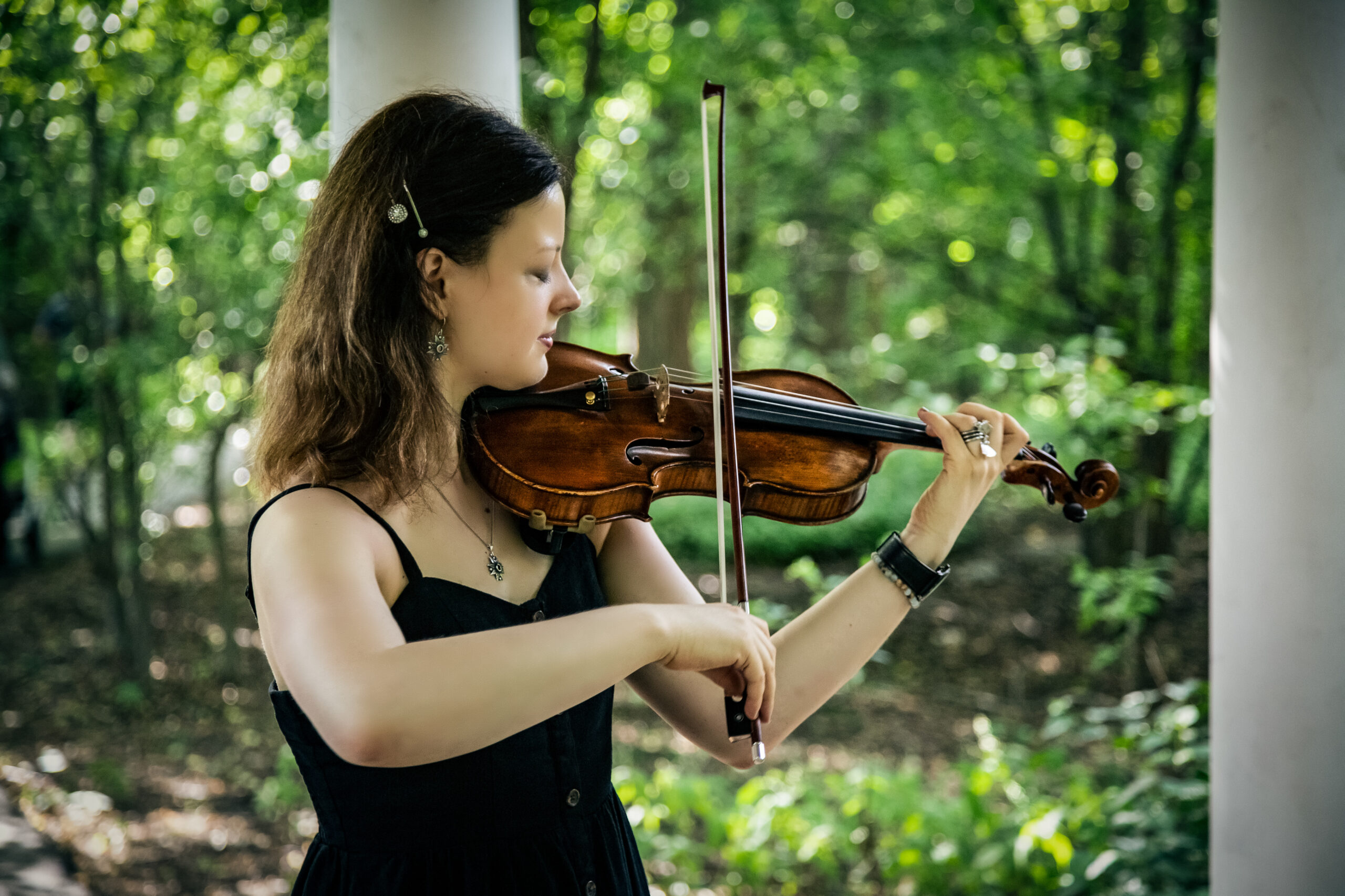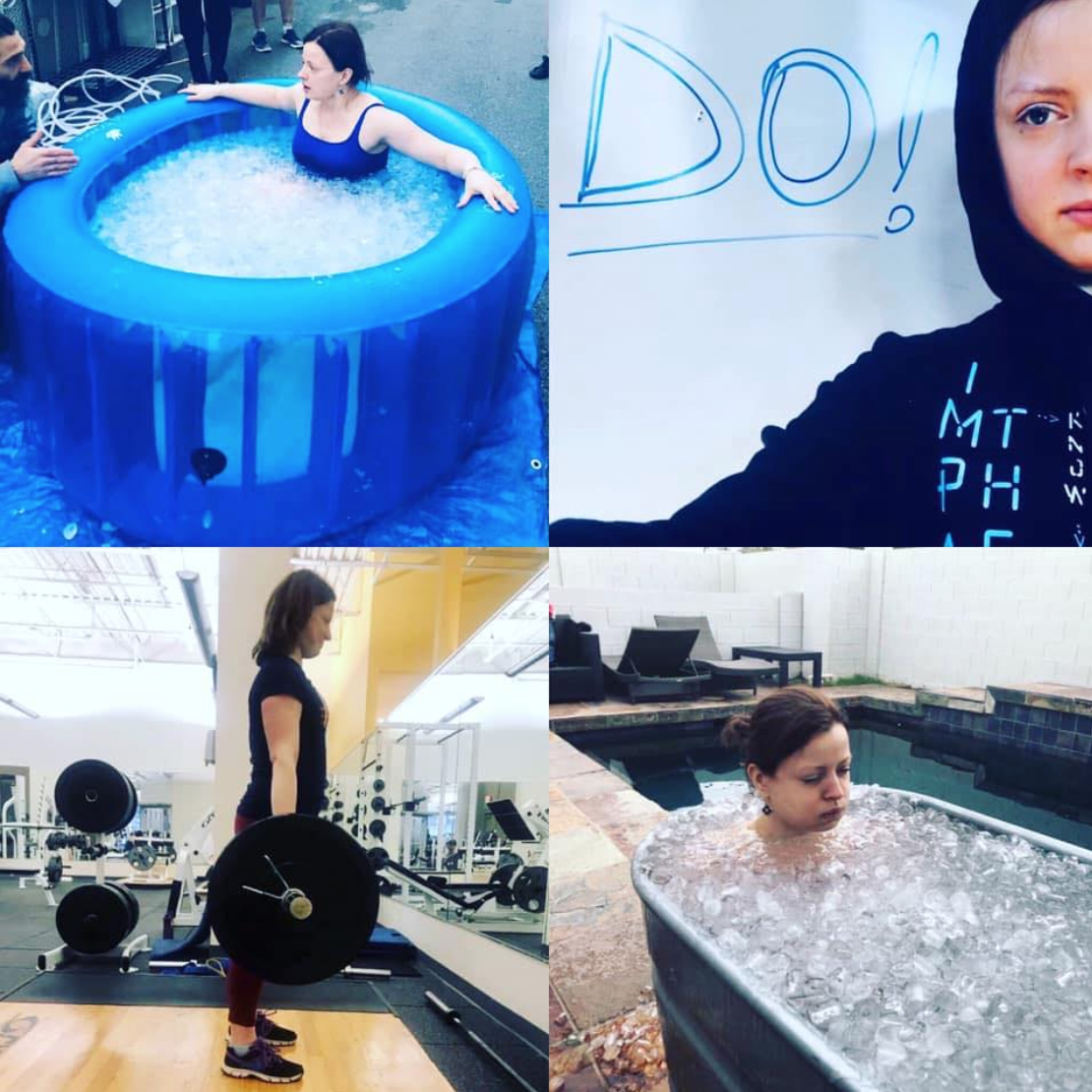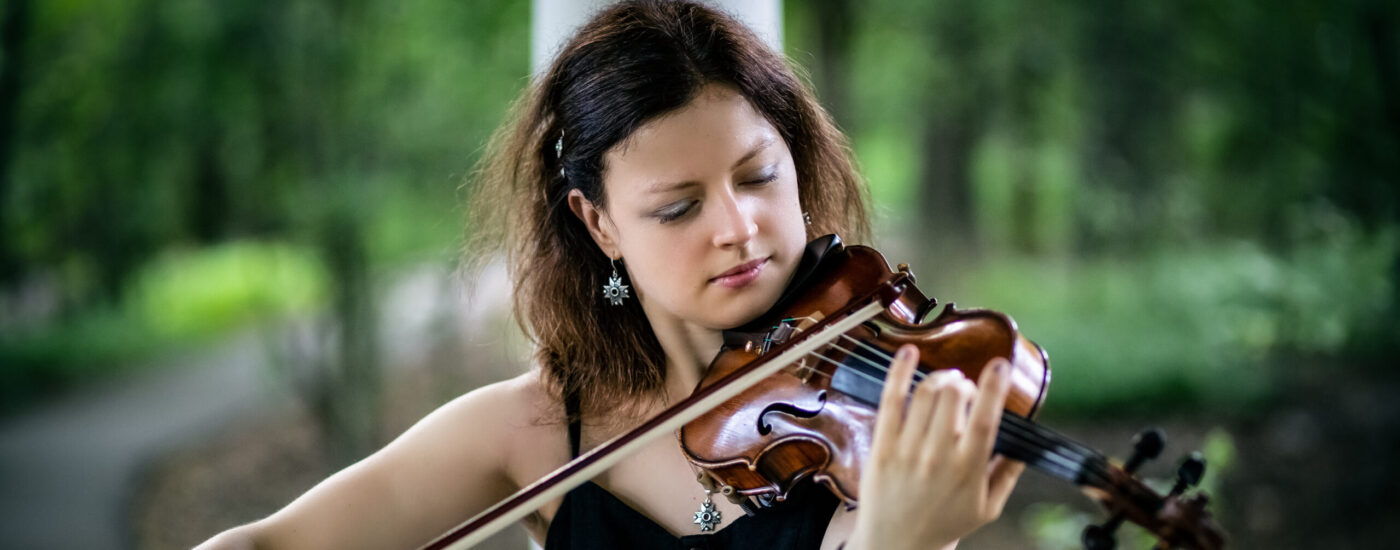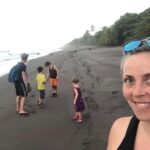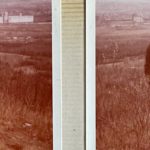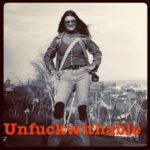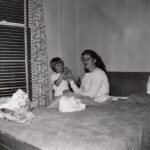Today we raise our fists high and put our hands together in celebration of our Feature Girl Warrior, accomplished violinist, chamber musician and pedagogue Aija Reke. She is an advocate of Baltic music, premiering and recording music by composers from Latvia, Lithuania and Estonia. She published her first original composition “Meditation-Prayer” with “Musica Baltica” in collaboration with Edition Peters in 2019. During the pandemic she recorded a new album with Latvian chamber music for violin and it is currently in production for release with classical music label Spice Classics. The album is dedicated to composer Jānis Porietis, who passed away in the end of February of this year. He dedicated his last piece “Dawn” to her Baltic Duo. During the pandemic Aija was invited to give guest lectures and masterclasses in Ventspils Music High School. The classes are taking place this year from February till June on Zoom and are sponsored by the US Embassy in Latvia. 200 participants have enrolled in these classes from all over Latvia. Aija received her Bachelor of Music in 2013 at the Rotterdam Conservatory in the Netherlands and went on to attend Boston University on a CFA Full Tuition Scholarship, graduating in 2015 with a Master of Music degree. In 2014 she won both the Solo Bach Competition at Boston University and the Boston Latvian Cultural Heritage award. Since 2015 she is a member of Pi Kappa Lambda, American National Music Honor Society. Aija has performed extensively in Europe and North America as a soloist, chamber musician and in numerous orchestras. She performs regularly with ALEA III – Contemporary Music Ensemble in Residence at Boston University with Boston Modern Orchestra Project and Odyssey Opera. Aija has also played as a sectional violin with the Latvian National Chamber Orchestra Sinfonietta Riga and Liepaja Symphony Orchestra. As a passionate pedagogue, she is teaching at Boston Music Project, BACE program in collaboration with Brookline Public Schools and privately. Her violin students have won international awards. Aija has also performed with the baroque orchestra Collegium Musicum at the University of Toronto, Collegium Musicum Riga, Latvia, and Harvard Baroque Chamber Orchestra, among others. She is the Artistic Director of High Street Concert Series that has concerts at the Latvian Lutheran Church of Boston. Her collaboration with several composers led to multiple world premieres, including microtonal Musings (2013) for violin solo by Lara Poe and Double Images (2017) by Ketty Nez. And during the pandemic Aija has been keeping very busy, having read 90 books (and counting)! Besides practicing and teaching Masterclasses via Zoom to students in Latvia, she gets up at 5 am, runs three times a week, takes one yoga class a week, takes three brisk walks a day, lifts weights, practices Wim Hof method, which involves breathing exercises and cold exposure, meditates and to repeat, she reads. A lot. And to that we say a loud and musical YES!
What makes you a Girl Warrior?
I never give up. No matter, how many times I fail, I always brush myself off and keep going. When I am in a struggle, I think “bring it on” and go even harder. Sometimes I jokingly think that I am made from iron, but actually my secret is releasing all negative emotions to a pure consciousness level. I think that by being fully confident with who I am is so important. Shining the inner light is the best feeling in the world. I also think that failing many times and consistently is a great learning ground for warriors. All of the most successful people in the world failed many times. The difference between successful and unsuccessful people is that people who succeeded, always got up and tried again.
When did you first discover your passion for music? And what drew you to the violin?
When I was three years old my mom brought me to singing lessons. The teacher noticed that I had a great pitch and told my mom that she should enroll me to take violin lessons. The music school told me I was too young and had to wait till I was five and I started my classes then with my wonderful first violin teacher Dace Splite-Lisova.
When you were 13 you attended an elite boarding school in Riga where you practiced 8 to 10 hours a day. That’s extraordinary discipline for someone so young. How were you able to stay so focused and avoid outside distractions?
Together with another student, who played a piano and we shared a dormitory room with, we woke up very early – at 5 am and sneaked in the school, while classrooms were being cleaned. Officially it was not allowed to go practice before 8 am, but we went together with cleaners and practiced. I always stayed up very late to finish my homework, because I always stayed at school till 10 pm to practice and completed my homework from 10 pm. I often stayed up till 3 am and only got two hours of sleep and a “commandant” – a person guarding all of the kids who lived in the dormitory, was many times angry at me that I went to brush my teeth at 3 am. I slept more on weekends. Weekends were 100% practice days and I practiced as much as I could and many times it ended up in muscle injury. I spent my weekends in my hometown in Tukums and performed at the local Evangelical Lutheran church on Sunday masses.
The boarding school had extremely high standards, because any low grade meant that you would be expelled from school. All of the grades were public and if someone didn’t pass it was on the board on the wall (there was a “monthly attestation”). From grades 1-10, where 1 is lowest and 10 is the highest grade; grade seven was considered a very low and unacceptable grade in musical subjects. We had to pass many weekly exams, memorize music, music theory, and history.
When I was in my first year in the boarding school, because I was the newest student in violin department, they decided to give me and another violin student grade seven. Both of us were expelled from the school for two weeks, despite that I had the highest total GPA in all grades in my whole class and practiced more than anyone else in the school. In two weeks they readmitted me and in September the next school year, because of my high GPA, I was one of five top ranking GPA students in the whole school and was awarded a special scholarship from Germany. That was a relief, but that event still was traumatic to me for many years.
There were a lot of teachers who tried to bully me for the amount of time I spent studying and practicing, but that resilience and amount of practice paid off in my career later.
How did you overcome your stage fright?
When I studied in Riga I developed a severe stage fright and my bow would shake on slow notes, when I was performing. Additionally I was skipping meals and only ate small snacks during weekday and also consumed many caffeinated drinks during the day to stay awake. As a boarding school student I was handed weekly lunch tickets and many times by Friday I still had at least four unused lunch tickets and gave them away to boys, who were so happy to get an extra meal. I didn’t realize then that caffeine and a poor sleep and diet routine was amplifying my nervousness in performing – at the end no one was really watching, how much I ate and how much I slept, so I was my own manager.
When I started traveling abroad I met exceptional violin teachers who helped me to battle stage fright. In Western Europe it was already popular to talk about stage fright and performance anxiety. The first teacher who helped me to overcome stage fright was Oleksandr Semchuk, who studied with Yehudi Menuhin. I took classes with him in Ukraine, Croatia and Italy. He helped me to learn a relaxed posture and hand position; he worked with me on technique a lot. The second teacher who worked with me psychologically was Benzion Shamir in Netherlands. He has a natural talent to connect with students and I developed a deep trust in him. He spent long hours with me working on complex pieces such as Bach’s “Chaconne”, talked about breathing, asked me to tune into my body and where I was feeling tension and release it, organized “try out concerts”, encouraged me to take Alexander Technique classes, taught a technique to prevent a “shaky bow.” His warmth, kindness and patience are admirable and he helped many students to perform at a high level. I regained trust and confidence in myself thanks to his work and support. My performances immediately became a lot better.
When I entered Boston University with a full scholarship, I had many performance opportunities and just because I was on stage that often (often three times a week), I developed a good performance routine. I give the biggest credit to my outstanding violin professor Dana Mazurkevich who guided me during my time at Boston University.
What’s your fondest memory of your summers with your grandparents in Latvia?
My grandparents had two summerhouses – one was a very tiny house with only one room with a very low ceiling, no running water and outdoor restroom, firewood heating. They had a huge garden with fruit trees and vegetables. My great grandmother had a house just a block away with her own large vegetable garden.
The tiny house was my great grandmother’s sister’s house, who was unofficially a Catholic nun (she lived during the Soviet era, when religion was forbidden). She built the tiny house and my grandpa inherited it after she passed away.
I have many fond memories of pulling out weeds and singing folk songs in the garden, when no one was listening, collecting vegetables and fruit, cooking and washing dishes with my grandmother and doing housework. I really enjoyed doing that. My grandmother is an excellent housekeeper and I learned the discipline from her. She took us to the local Catholic center every 15th of August to the biggest Catholic center in the Baltic States – Aglona, which was nearby. Thousands of people would walk there in the holy cross ceremony from all over the Baltic States and prayed and held candles. It was such a beautiful memory. I still can remember, how I was holding my candle the whole night and saw the icon of St. Mary for the first time.
You came to the US in 2013 on a full scholarship at Boston University College of Fine Arts. What was the most important lesson you learned from famed Lithuanian-born violinist Dana Mazurkevich?
Dana Mazurkevich unquestionably is the most important musical influence in my career. I was just mesmerized every time she played a note on the violin – her sound (on any violin – even on a cheap student’s instrument) sounds as beautiful as the sweetest human voice. Dana’s presence alone in the room made me a play better. She has a special aura, which is very vibrant and pure. Ms. Mazurkevich is the most sincere teacher and she is always so kind to all of her students. I learned from her to always treat all of my students with kindness and to pass the musical legacy with joy, vibrance, positivity and encouragement. I learned that students, who are playing their instrument with joy and practicing their musical skill with confidence and vibrancy will double their performance. It’s magical. Comparing the difference of the emotional teaching method, where sometimes teachers are negative and strict in a constrictive way, to the practice of kindness and positivity, truly changed me. This is a great example of a growth mindset and I want to pass it on to my students as well. Ms. Mazurkevich studied in the Moscow conservatory with legendary David Oistrach. When I look at her playing I can see Oistrakh’s influence in every note of her playing, which is so beautiful.
Of all your achievements and many awards, is there a particular honor that shines above the others that you are most proud of?
When I was a student I was so concerned with getting the most awards and scholarships, but then I realized violin playing is not about winning a trophy. The trophies can come and go, but what I am more focused on is that I am fully present in my musical career, performance and teaching. It is much more important to build a community and connect to your audience.
Besides performing as a soloist, chamber musician and in numerous orchestras, you’ve been teaching at the BACE (Brookline Adult & Community Education) and the Pierce and Driscoll Schools and Boston Music Project. Since the pandemic you’ve moved to online classes. How did the Masterclasses you’re teaching (via Zoom) to students in your homeland of Latvia come about? Why is it important to you to keep this connection?
In the month of November 2020 I received a personal message from Latvia. It was an invitation to give Zoom masterclasses sponsored by the US Embassy and KulturBaka in my homeland, Latvia. The organizers from Ventspils Music High School, which is also a boarding school, asked me to give monthly masterclasses from February till June 2021. It’s the first ever masterclass that I am doing in Latvia, while being abroad (I have given masterclasses in my first music school in the past). The second instructor in these masterclasses is Grammy Winning trumpet player Charlie Porter.
It is so great to connect to students, teachers and music professionals in Latvia. They have such a high level of musical training that is very unique to Latvia. The musical tradition is very strong in Latvia because of the choir tradition and the national Song and Dance festival. I am very grateful for this opportunity.
Many of my former teachers, classmates and colleagues participated in the first three masterclasses.
What have you learned about yourself during this past year of the Pandemic?
During the pandemic I read 90 books (and counting!!!). My recent favorite books are “Deep Work” by Cal Newport, “The Brain is Always Listening” by Dr. Amen and “Believe It” by Jamie Kern Lima.
Because I am enrolled in two personal development programs – “Impact Theory University” with Tom Bilyeu and “Growth Day” with Brendon Burchard, I learn new things literary every single day. Because I read so much I also learn many things about psychology, education, mindset, health and violin methods. I learned that I love to take long nature walks, I love waking up early (5 am). I don’t miss the “rat race” of pre-pandemic and I like to be working on a steady regular schedule from home or rented office. The pandemic taught me to live in the present moment and that the most valuable asset we have is time. Don’t do things that don’t bring you joy, because, when you bring joy in your life, you raise your energy vibration and people who you connect with also will feel that. It is a ripple effect – the joy is spreading.
How do you stay healthy physically, emotionally and intellectually?
I wake up very early (5 am), run three times a week, take one yoga class a week, take three brisk walks a day. I practice Wim Hof method, which involves breathing exercises and cold exposure. I meditate and read. I also do weight lifting exercises.
I use aromatherapy – I put essential oils in a diffuser and also on my body instead of a chemical perfumes. I eat mostly an organic root vegetable based diet and stay hydrated throughout a day. I love loose herbal teas.
I try to not over schedule myself, which is still a challenge – doing less. High-level projects are much more satisfying and valuable than being scattered and doing many things at a mediocre level. Being recharged is so important, because we really also have a pandemic of burned out people and we need to shift the culture to more balanced lifestyles.
I also love digital minimalism and digital detox, when I put my phone on “do not disturb” or on “screen time.” I love it, when I can’t access my apps for a certain time. We live in the world of distractions and any notification of the phone leaves a “mental residue,” which distracts you from a focused flow state, which is deep work.
What do we need to know “for sure” about pursuing our dreams and achieving our goals?
Trust in yourself and your intuition. You are enough. Use a planner and break down your goals to subgoals. Only work at three major tasks a day and categorize the rest of your tasks in a minor task, so called “to do list” or “not now” or to “wait list.” Create a day plan, week plan, monthly plan, yearly plan and 3-year plan. Do a week review. Remember that there can be only one top priority.
Does practice make perfect?
The perfection doesn’t exist. When we think we are perfect, we stop growing. It’s great to keep the white belt mentality and continue learning and improving every day. Taking small steps every day will lead to quantum leaps in progress.
If you could choose one book to take to a desert island, what would it be?
Brendon Burchard “The Motivation Manifesto.”
What’s the most important life lesson your Mom taught you?
You can achieve anything, if you put in relentless effort in achieving your goals
What would you say to your younger Girl Warrior?
Education is key to success. Read, attend workshops, enroll in classes. Acquire as many skills as possible. This will make you strong and independent in your life.
What would you say to future Girl Warriors looking for inspiration?
Be your authentic self – everyone else is already taken. By being who you truly are you will be more successful in creating original work in any industry and have great results in finding peers, friends and colleagues that you resonate with. Don’t dim your inner light to fit into the concept that fixed mindset people are creating.
Who is/are your Girl Warrior hero(s) and why?
Jamie Kern Lima, because she changed the beauty industry; Brene Brown, because of her work on researching vulnerability and shame; Evy Poumpouras – former Secret Agent, who was at 9/11 – for her strength, resilience and intuition; Lisa Bilyeu for being her authentic self and giving motivation to woman to step into their full potential.
Blue Sky it. No boundaries here, just limitless opportunities. Where do you see yourself in five years?
CEO of a High Performance String Method School, university professor, author of three books, a mother of two children, composer, thought leader.
Describe yourself in five words.
Relentless, focused, vibrant, empathic, compassionate.
If a symphony were written about your life, what would it be called?
“Arise”
To learn more about Aija head on over to her website at: www.aijareke.com
Follow her on Facebook at Aija Reke Violinist: https://www.facebook.com/AijaRekeviolinist
Instagram @AijaRekeViolinist: https://www.instagram.com/aijarekeviolinist/
Spotify at Aija Reke: https://open.spotify.com/artist/6Ki8v6blcoMZG39mXEtxFq
YouTube at violinsun: https://www.youtube.com/user/violinsun/featured
